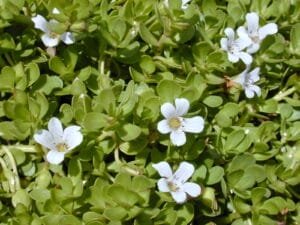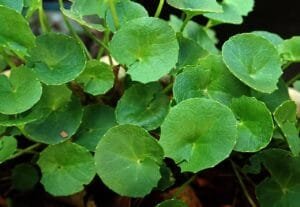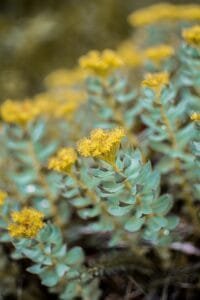Introduction To Brain Health And The Role Of Herbs
Brain health is a crucial element of overall well-being, influencing not only cognitive functions such as memory, attention and decision-making but also emotional regulation and social interactions. As we age, the brain can undergo significant changes, potentially leading to cognitive decline or various neurological conditions. Prioritizing brain health is essential, as it plays a vital role in helping individuals maintain their quality of life and independence as they grow older.
The impact of cognitive function extends beyond the individual, affecting family dynamics, community engagement and workplace productivity. Therefore, supporting brain health through various means can contribute to a more fulfilling life. Among the numerous approaches available, the use of natural herbs has emerged as a popular and effective option to help boost cognitive functions and promote overall brain wellness.
Herbs have been utilized for centuries across various cultures not only for their nutritional benefits but also for their therapeutic properties. Modern research supports traditional knowledge, revealing that certain herbs contain bioactive compounds that may enhance neural function, improve circulation and protect against oxidative stress. These factors are crucial in maintaining brain health, as they can contribute to improved memory, concentration and mental clarity.
This blog post will delve deeper into the specific herbs that have been recognized for their positive effects on cognitive function, helping readers understand how to incorporate them into their daily routines. By shedding light on the functionality of these natural remedies, we aim to empower individuals to make informed decisions that could potentially lead to improved brain health. The following sections will provide practical guidance and insights into the benefits these herbs can offer for cognitive enhancement.
Top Herbs For Enhancing Cognitive Function
Cognitive function is a vital aspect of overall brain health, and certain herbs have long been recognized for their ability to enhance mental clarity, memory, and focus. Among the most prominent of these herbs are ginkgo biloba, bacopa monnieri, gotu kola and rhodiola rosea, each offering unique benefits and mechanisms of action that contribute to improved cognitive performance.

Ginkgo (Ginkgo biloba) one of the oldest living tree species, has been used in traditional medicine for centuries. It is believed to enhance cognitive function by improving blood flow to the brain, which in turn may help with memory and mental processing. Studies have indicated that ginkgo biloba may be beneficial for individuals experiencing cognitive decline, as it can support brain health through its antioxidant properties and neuroprotective effects. Various clinical trials have shown positive outcomes in memory improvement and symptom relief from conditions such as dementia.
Brahmi (Bacopa monnieri)is an herb traditional to Ayurvedic medicine, is recognized for its ability to support memory and learning. Its active compounds, known as bacosides, promote neural communication by enhancing synaptic plasticity, allowing for better retention and recall of information. This herb has been subjected to numerous scientific studies, which have demonstrated its efficacy in improving cognitive performance, especially in memory recall tasks and reducing anxiety in various populations.
Brahmi is also a protective agent to the brain aiding recovery from mental degeneration or damage, by encouraging protein synthesis in the brain and also balancing the response of stress hormones. It is an excellent long-term choice for boosting overall brain performance and increasing your capacity to learn.
Gotu kola (Centella asiatica) improves circulation to the brain, supporting cognitive functioning such as memory and concentration whilst also protecting the brain tissue from damage caused by free radicals. This has made gotu kola effective for conditions such as Alzheimer’s, stroke and degeneration influenced by ageing. The plant has distinctive round leaves, often described as ‘brain-shaped’, which interestingly conforms with the ‘doctrine of signatures’ – an ancient belief that herbs resemble parts of the body that they are used to treat.
Rhodiola rosea (R. rosea L.) an adaptogenic herb primarily found in cold regions of the world, is known for its ability to combat fatigue and stress while enhancing mental clarity. This herb promotes resilience against stress-related cognitive decline by modulating neurotransmitter levels, including serotonin and dopamine, which are crucial for mood regulation and cognitive function. Research has shown that rhodiola can significantly improve cognitive performance, particularly under stressful conditions.
The incorporation of these potent herbs into daily routines may provide substantial cognitive benefits, supporting enhanced brain health and function. Understanding their unique properties and mechanisms can inform individuals seeking to boost their cognitive abilities naturally.
How To Incorporate Brain-Boosting Herbs Into Your Diet
Integrating brain-boosting herbs into your daily diet can enhance cognitive function and improve overall mental well-being. Various methods of consumption make it accessible for everyone. One popular method is making herbal teas. For instance, herbs like rosemary and ginkgo biloba can be boiled in water to create a warming infusion. It’s advisable to allow the tea to steep for 10-15 minutes to extract their beneficial properties. Enjoying a cup of herbal tea in the morning or afternoon can serve as a delightful and energizing routine.
Herbs can also be consumed in supplement form. Many people find capsules or powdered extracts more convenient, especially if they have a busy schedule. When opting for supplements, it is crucial to consult a healthcare professional to determine the appropriate dosage, as some herbs can interact with medications or may not be suitable for everyone. Always read labels and choose reputable brands to ensure quality and safety.
Incorporating these herbs directly into meals is another effective strategy. Fresh herbs like basil, sage and turmeric can be added to salads, soups or smoothies, enhancing both flavor and nutritional content. They not only add zest to dishes but also contribute to cognitive health. Timing is also essential; consuming these herbs in the morning can offer mental clarity throughout the day, while evening herbs may promote relaxation.
While the incorporation of brain-boosting herbs can offer significant benefits, it is vital to be aware of potential side effects or interactions. For example, some individuals may experience allergic reactions to certain herbs, or there may be contraindications with existing health conditions. Keeping a journal of the herbs you’ve taken and their effects can provide valuable insight into what works best for you.
In conclusion, various methods exist to seamlessly include brain-boosting herbs in your daily diet. Whether through teas, supplements or culinary uses, ensuring proper dosage and awareness of potential interactions will pave the way for a healthier mind.
Conclusion
The exploration of herbs for brain health reveals a wealth of natural options that can potentially enhance cognitive function and support mental clarity. Throughout this discussion, we have highlighted several key herbs such as ginkgo biloba, brahmi, gotu kola and rhodiola rosea, each offering unique benefits that may lead to improved memory, increased focus and reduced mental fatigue. These herbal remedies have been utilized for centuries across various cultures, underlining their long-standing significance in promoting cognitive wellness.
However, it is important to recognize that while these herbs can contribute positively to brain health, they should not be viewed as standalone solutions. A comprehensive approach that includes a balanced diet rich in vitamins and minerals, regular physical activity to stimulate blood flow to the brain and mental exercises tailored to challenge cognitive functions is essential for overall mental clarity and health. The synergistic effect of these lifestyle choices can enhance the benefits derived from herbal supplementation.
Before embarking on any new herbal regimen, individuals are strongly encouraged to consult with healthcare professionals. This is crucial, especially for those with pre-existing conditions or those currently taking medications, as interactions may occur. Tailoring an approach that considers personal health circumstances ensures the safe incorporation of herbs into one’s wellness routine. Ultimately, nature offers valuable resources in the form of herbs but when combined with a holistic lifestyle, they can be an effective part of a strategy aimed toward achieving better brain health and cognitive longevity.
This post may contain affiliate/referral links. Read my full Disclosure/Disclaimer Policy.




